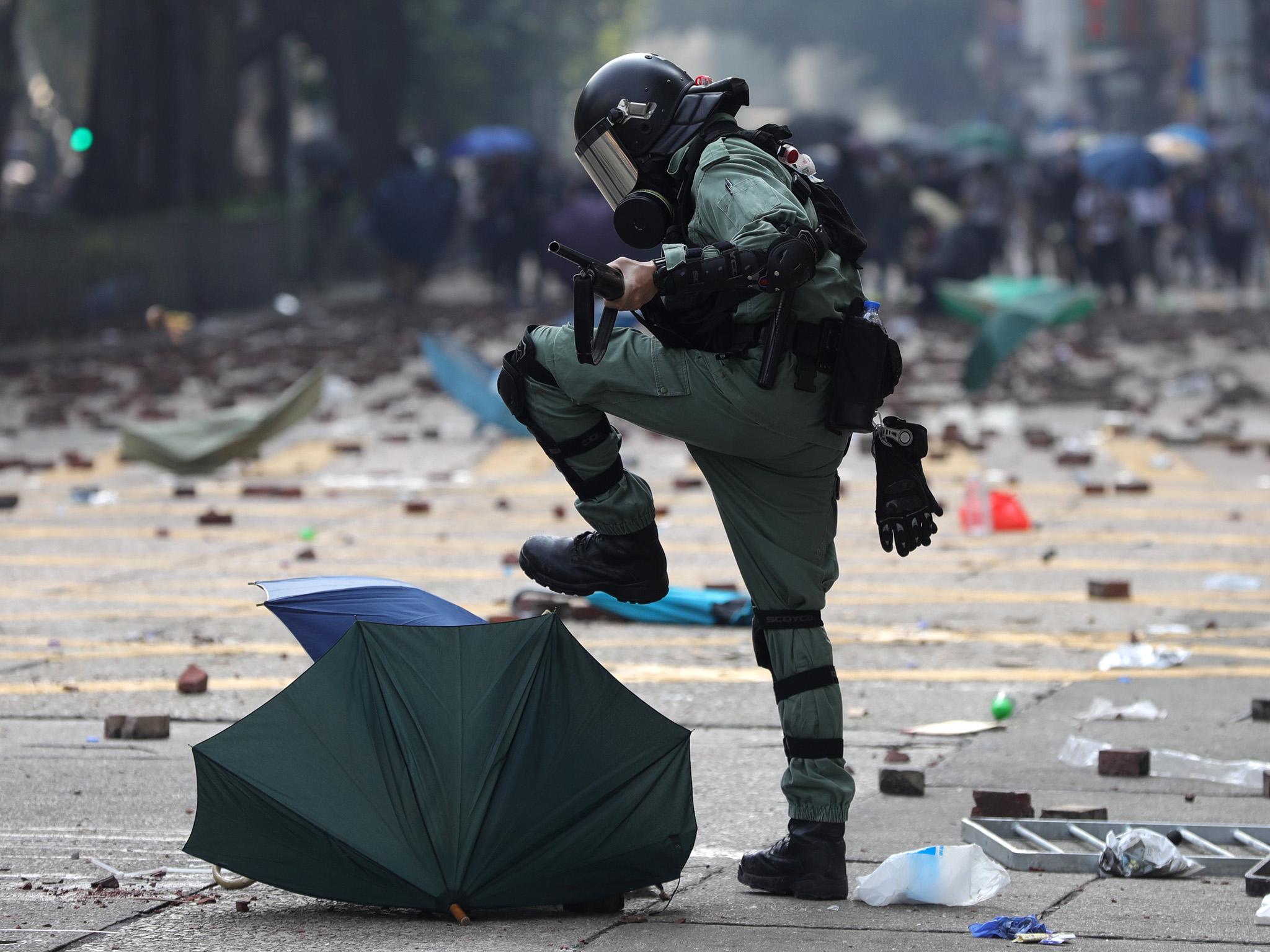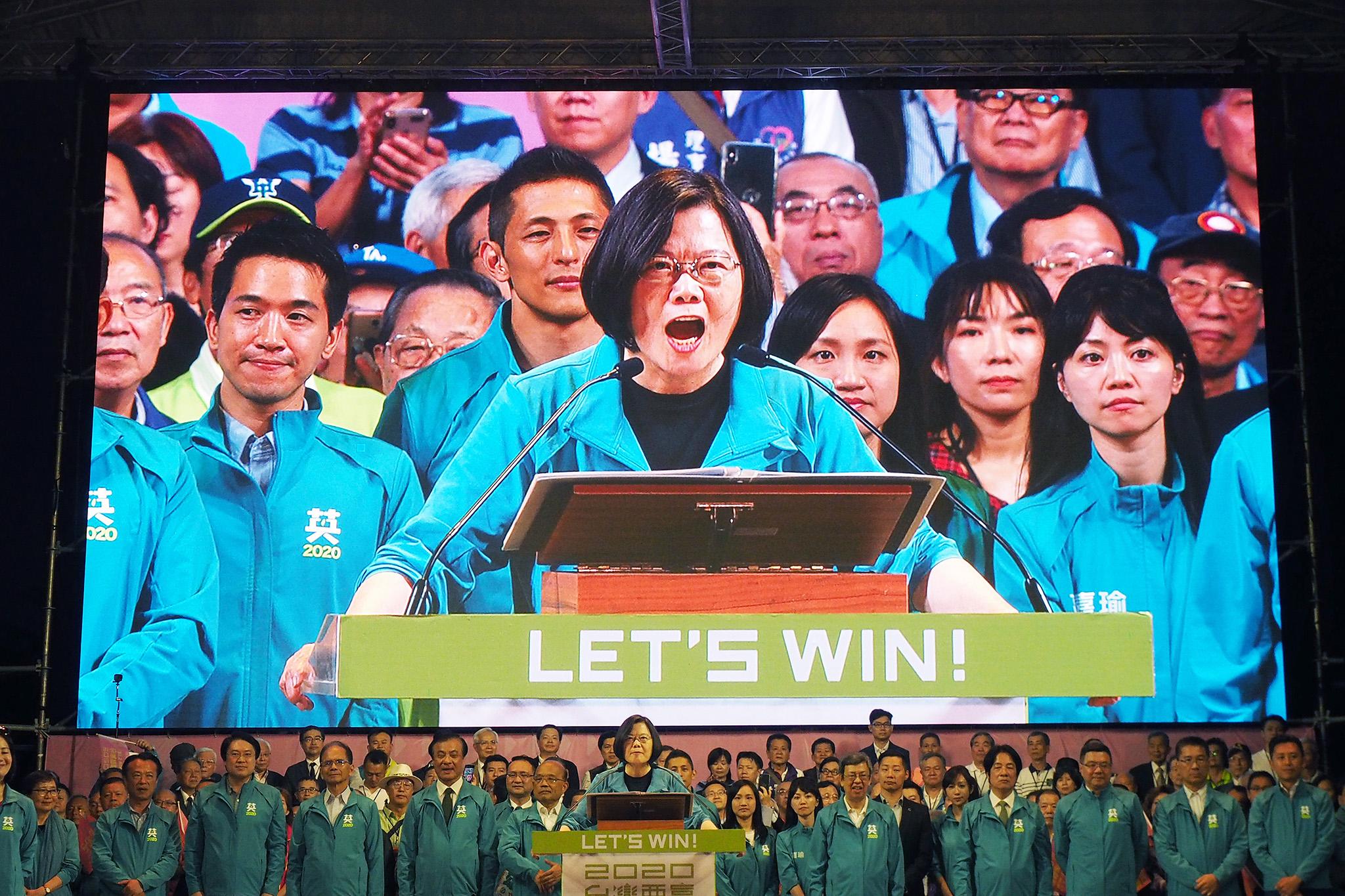Hong Kong protests: China trying to manipulate politics with covert intelligence operation, says whistleblower
Beijing seeks to turn an 'originally democratic and free land into autocratic land', fears defector

A man claiming to be a disillusioned Chinese intelligence operative has told Australian authorities that China’s military intelligence agencies were directly intervening in politics in Hong Kong and Taiwan, buying media coverage, infiltrating universities, funnelling donations to favoured candidates and creating thousands of social media accounts to attack Taiwan’s governing party.
So far, some Western diplomatic officials believe the claims by an asylum-seeker named Wang Liqiang to be reliable at least in part, according to two people briefed on the matter. While some of his details appeared speculative and impossible to verify, the officials were taking his claims seriously, the people said.
If verified, his account would be one of the most detailed ever made public of China’s covert measures to manipulate politics and public opinion in Hong Kong and Taiwan.
Mr Wang’s account, a 17-page plea for political asylum in Australia, reads in parts like an espionage thriller. He detailed code names of covert operations, shadowy business ventures and ultimately his dawning disenchantment with what he described as China’s efforts to stifle democracy and human rights around the world.
“I do not want to see Taiwan becoming a second Hong Kong,” he wrote. “And I would not become an accomplice in the conspiracy of turning an originally democratic and free land into autocratic land.”
The office of Australia’s Minister for Foreign Affairs confirmed receiving Mr Wang’s statement, which was first reported by The Sydney Morning Herald and The Age. An English translation was provided to The New York Times by a person familiar with his request for asylum. The people familiar with Mr Wang’s statement requested anonymity because his allegations are still being investigated.
Mr Wang’s statement surfaced as protests continue to convulse Hong Kong, driven in large part by concerns over the steady encroachment of Communist Party rule despite Beijing’s pledge to respect the former British colony’s economic and political autonomy.
In his account, Mr Wang said he was involved with the apprehension by Chinese agents in 2015 of five booksellers in Hong Kong, an incident often cited by demonstrators. He said he received orders “to pay close attention” to one of them, Lee Bo, for his involvement in publishing a gossipy book called “Xi Jinping and His Six Women” that purported to delve into the personal life of China’s top leader.
The statement also emerged only weeks before Taiwan’s presidential election in January. The campaign has already been shaken by allegations of Chinese interference. The governing party has accused China of supporting the opposition party, the Kuomintang.
“I have to repeat that China is factually interfering in Taiwan’s election, and it happens every day,” Taiwan’s president, Tsai Ing-wen, said Tuesday as she officially launched a re-election campaign.
Beijing has made no secret of its opposition to Ms Tsai and her party, the Democratic Progressive Party, which has sought to bolster Taiwan’s political and economic independence. Her challenger is Han Kuo-yu, a populist who was last year elected mayor of Kaohsiung, a city in southern Taiwan, and who has promised to improve relations with the mainland.
According to his account, Mr Wang himself helped funnel campaign donations of roughly $2.8m (£2.2m) to Mr Han in the 2018 elections.
“Now that the 2020 presidential election is approaching, China will be putting much more efforts into it,” he wrote.
Chao Chien-min, one of Mr Han’s policy advisers, strongly disputed the accusations.
“How could Han Kuo-yu dare to casually accept 20 million renminbi in unknown money?” he said. “Does he still want to survive in Taiwan’s political arena? I believe that is impossible.”
Mr Wang’s allegations seem certain to reverberate widely in Taiwan, in Hong Kong and on the mainland. Although China’s intelligence operations in Taiwan and Hong Kong have long been presumed to be robust, the statement provided an extraordinary amount of detail.

The disclosures could also further sour relations between China and Australia, which recently passed a law seeking to rein in foreign interference after several wealthy Chinese businessmen tied to Beijing were accused of trying to manipulate Australian politics.
One of those businessmen, Huang Xiangmo, was a successful developer who had his Australian residency cancelled in February. According to Wang’s statement, Huang led a group of Australian state and local lawmakers to visit Hong Kong, where they met with Mr Wang’s boss, a man named Xiang Xin. Mr Huang, who has previously rejected the claim that he has tried to interfere in Australian politics on behalf of Beijing, could not be reached for comment.
These kinds of connections between Australian lawmakers, Chinese wealth and officials whose Communist Party ties are masked by big business have put much of Australia on edge. Earlier this week, the former head of Australia’s main foreign intelligence agency described China’s espionage efforts as “insidious.”
Mr Wang described himself as the son of a public servant, but little else is known about him, including his age and hometown. He could not be reached for comment. One clue from his statement is that he studied to be a painter, winning awards in Anhui province in eastern China.
Seeking a job, he ended up at an investment firm called China Innovation Investment Limited, run by Mr Xiang. Mr Wang wrote that the company was in fact a front for an arm of China’s Ministry of National Defence to conduct a range of political and economic espionage.
Mr Xiang, 54, is an owner or top director at more than a dozen Hong Kong companies. Some of the companies are co-owned by his wife, Gong Qing, whose biography includes positions at two government-tied institutions. One of those was the China National Science and Technology Information Centre, a military intelligence organisation within the People’s Liberation Army.
Asked to comment, Mr Xiang denied any knowledge of Mr Wang. “I never knew Wang,” he wrote in an email.
In 2005, Chen Yonglin, a Chinese consular official, sought asylum, promising to divulge details of China’s spy network. The Australian government initially rejected his request, prompting a parliamentary inquiry. It found that he was told the denial was “for reasons of foreign affairs.” Mr Chen’s application was later approved.
Mr Wang suggested he understood that Australia might again need to be persuaded before standing up for a single defector. He condemned China’s autocratic ways, expressing his “resolute opposition to the actions imposed by the Communist Party of China that trample on democracy, human rights and freedom.”
“If I return to the place under their control,” he added, “I will surely be killed for disclosing the secrets because I know too much.”
The New York Times
Join our commenting forum
Join thought-provoking conversations, follow other Independent readers and see their replies
Comments
Bookmark popover
Removed from bookmarks